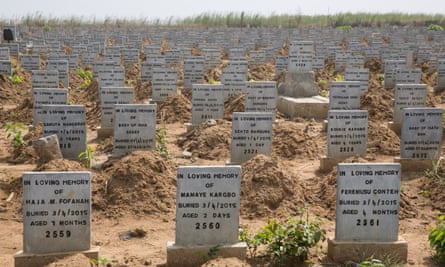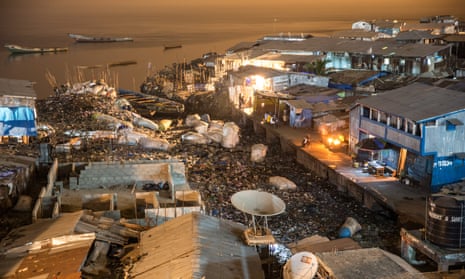Little known to the rest of the world, a team of open source software developers played a small but integral part in helping to stop the spread of Ebola in Sierra Leone, solving a payroll crisis that was hindering the fight against the disease.
Emerson Tan from NetHope, a consortium of NGOs working in IT and development, told the tale at the Chaos Communications Congress in Hamburg, Germany.
“These guys basically saved their country from complete collapse. I can’t overestimate how many lives they saved,” he said about his co-presenters, Salton Arthur Massally, Harold Valentine Mac-Saidu and Francis Banguara, who appeared over video link.
Tan was dispatched to Sierra Leone in October 2014 with a vague mandate: “Go there and improve things.”
The problem that most urgently needed solving was distributing wages to healthcare workers on the frontline fighting the epidemic.
“In the old system, nobody gets paid, for months,” Tan said, which caused multiple problems. Doctors and nurses were forced to take money from patients, he said, undermining people’s confidence in the health system at a vital time. And when healthcare workers went on strike, Ebola patients in hospital quarantines broke out in search of food, exacerbating the spread of the disease.
When millions of dollars began pouring in from international sources, it wasn’t clear how to distribute it to the 30,000 healthcare workers needed to tackle the epidemic because until that point, payroll had been handled in cash. Tan said he was sometimes handling “kilograms of money”.
“Sometimes I would just weigh it, because it’s easier to weigh a stack of money than to count it.” The country’s central bank at one point informed him they were going to run out of bank notes. On top of those problems, there were only eight ATMs in the entire country.

Time was a pressing concern. A UN official told Tan: “We have a couple of months, or we’re going to lose the region.”
To solve the problem, Massally and his team drew on existing open source software solutions for payroll management, biometrics, logistics and accounting.
“None of this would be possible without open source software and frameworks,” Tan told the audience at the technology conference. “You could not possibly develop systems this quickly for such low amounts of money without the existence of this huge open source ecosystem.”
The team cannibalized Sierra Leone’s existing voter registration machines to create a payroll enrollment scheme. They couldn’t use fingerprint biometrics because it would have created a cross-contaminating risk, so they used open source facial recognition software called OpenBR to enroll healthcare workers.
Then, in conjunction with other groups and individuals working in Sierra Leone, they developed a mobile money system that substituted cellphone-minutes for cash, and created an automated payment system.
They completed the core system in two weeks, going without sleep for days at a time, knowing that millions of lives depended on their work.
“I still have some health concerns from drinking too much caffeine,” said Massally.
“People were paid on time, 100% of the time”, Tan said, “for the first time in Sierra Leone’s history.” As a result, people’s faith in the healthcare system was restored, he said, drawing a direct link between that and the end of the Ebola epidemic.
As of 7 November 2015, Sierra Leone is considered to be free of Ebola. A total of 3,955 people lost their lives in Sierra Leone, more than a third of the total deaths associated with the 2014-15 west African Ebola outbreak.
- This article was amended on 7 January 2016 to clarify a sentence about the creation of an automated payments system, by adding the words “in conjunction with other groups and individuals working in Sierra Leone”.

Comments (…)
Sign in or create your Guardian account to join the discussion